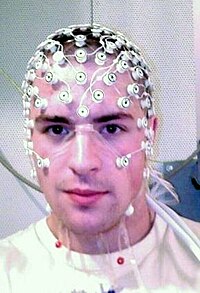
Pre-sleep Cognitive Arousal Decreases Following a 4-Week Introductory Mindfulness Course
Sign Up to like & getrecommendations! Published in 2019 at "Mindfulness"
DOI: 10.1007/s12671-019-01217-4
Abstract: Objectives Mindfulness-based training has shown potential in reducing anxious and ruminative thoughts before sleep, and improving sleep quality. A majority of experiments on this topic have studied Mindfulness-Based Stress Reduction, or related 8-week programs. In… read more here.
Keywords: course; pre sleep; mindfulness; week ... See more keywords

0145 Pre-Sleep Cognitive Arousal Decreases Following a 4-Week Introductory Mindfulness Course
Sign Up to like & getrecommendations! Published in 2020 at "Sleep"
DOI: 10.1093/sleep/zsaa056.143
Abstract: Mindfulness-based training has shown potential in reducing anxious and ruminative thoughts before sleep, and improving sleep quality. However, traditional 8-week programs have limited acceptability and uptake. In this study, we aimed to test the effects… read more here.
Keywords: mindfulness; week; group; course ... See more keywords

0317 A single-arm proof-of-concept clinical trial of a mindfulness-based intervention for prenatal insomnia
Sign Up to like & getrecommendations! Published in 2023 at "SLEEP"
DOI: 10.1093/sleep/zsad077.0317
Abstract: Cognitive behavioral therapy for insomnia (CBTI) improves sleep in pregnancy, but its therapeutic benefits may be diminished in pregnancy due to undertreatment of cognitive arousal (i.e., heightened cognitive activity, especially at night). Growing evidence indicates… read more here.
Keywords: insomnia; pumas; trial; cognitive arousal ... See more keywords

0370 A three-arm randomized controlled trial examining mindfulness-based and cognitive-behavioral therapies for prenatal insomnia
Sign Up to like & getrecommendations! Published in 2023 at "SLEEP"
DOI: 10.1093/sleep/zsad077.0370
Abstract: Cognitive behavioral therapy for insomnia (CBTI) improves sleep in pregnancy, but its therapeutic benefits may be diminished in pregnancy due to undertreatment of cognitive arousal (i.e., heightened cognitive activity, especially at night). A recent proof-of-concept,… read more here.
Keywords: relative control; depression; cognitive arousal; arousal ... See more keywords

On the relationship between EEG spectral analysis and pre-sleep cognitive arousal in insomnia disorder: towards an integrated model of cognitive and cortical arousal.
Sign Up to like & getrecommendations! Published in 2023 at "Journal of sleep research"
DOI: 10.1111/jsr.13861
Abstract: According to the hyperarousal model, insomnia is characterised by increased arousal in the cortical, cognitive, and physiological domains. However, the interaction between these arousal domains is poorly understood. The present observational case-control study aimed to… read more here.
Keywords: relationship; pre sleep; eeg spectral; cortical arousal ... See more keywords

Pre-sleep cognitive arousal exacerbates sleep disturbance in chronic pain: an exploratory daily diary and actigraphy study
Sign Up to like & getrecommendations! Published in 2021 at "Scandinavian Journal of Pain"
DOI: 10.1515/sjpain-2020-0185
Abstract: Abstract Objectives Insomnia is commonly comorbid with chronic pain, and typically leads to worse outcomes. Two factors that could contribute to a cycle of pain and sleeplessness are pre-sleep cognitive arousal (repetitive thought processes) and… read more here.
Keywords: sleep cognitive; pre sleep; cognitive arousal; chronic pain ... See more keywords

Pre-Sleep Cognitive Arousal Is Unrelated to Sleep Misperception in Healthy Sleepers When Unexpected Sounds Are Played during Non-Rapid Eye Movement Sleep: A Polysomnography Study
Sign Up to like & getrecommendations! Published in 2022 at "Brain Sciences"
DOI: 10.3390/brainsci12091220
Abstract: Background: It is well-established that environmental noise can disrupt sleep, and cause a mismatch between subjective and objective sleep, which is known as “sleep misperception”. Naturalistic studies indicate that pre-sleep cognitive arousal and sleep misperception… read more here.
Keywords: sleep; pre sleep; sleep misperception; cognitive arousal ... See more keywords